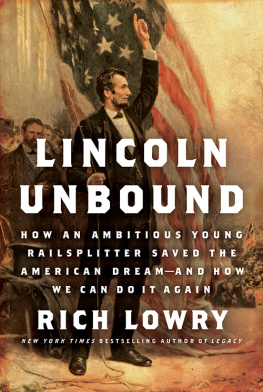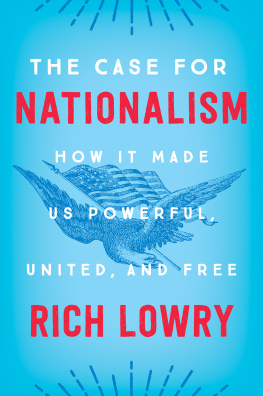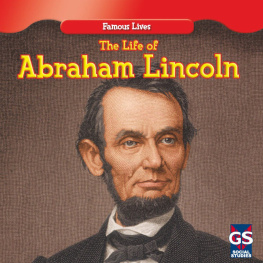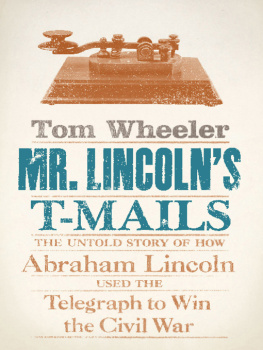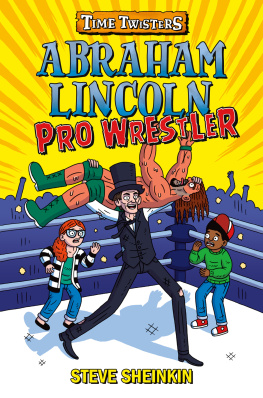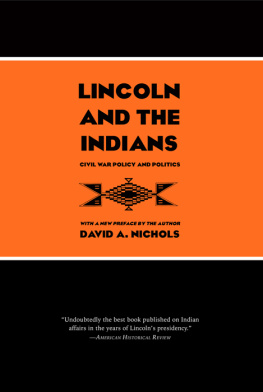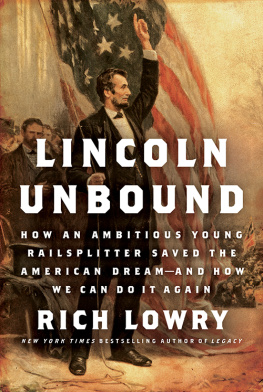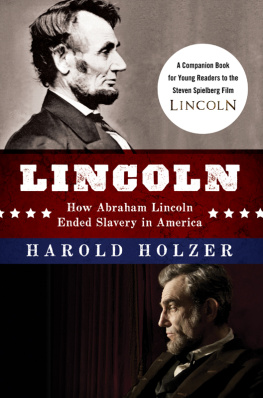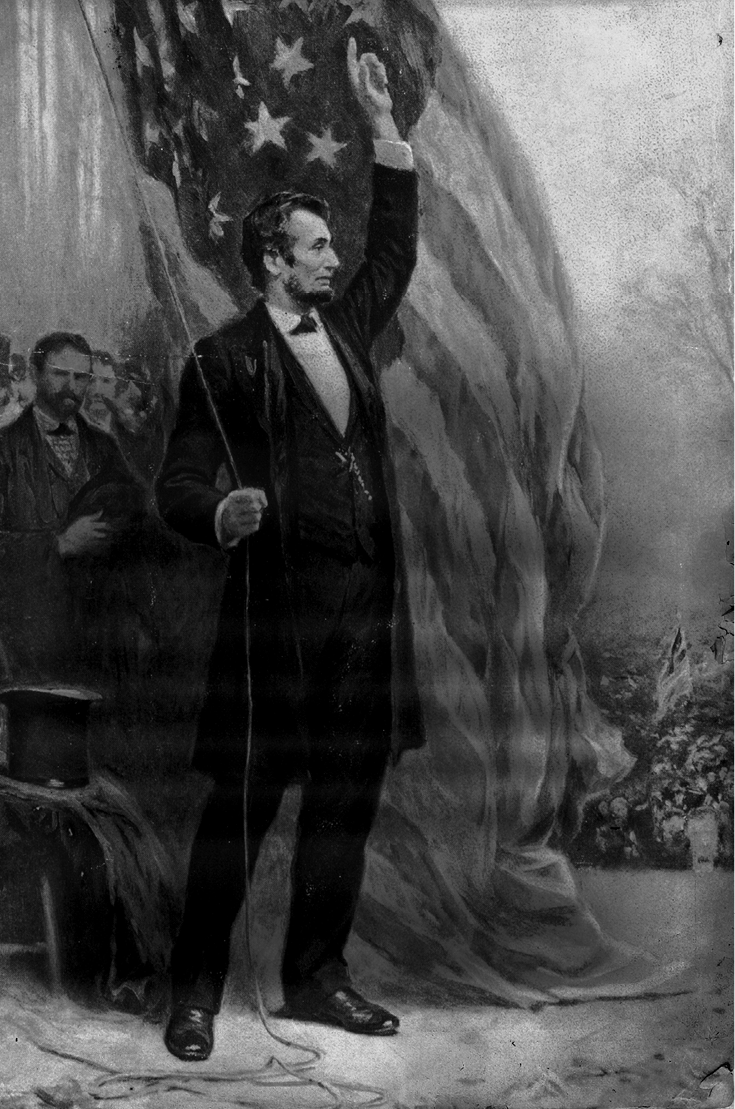
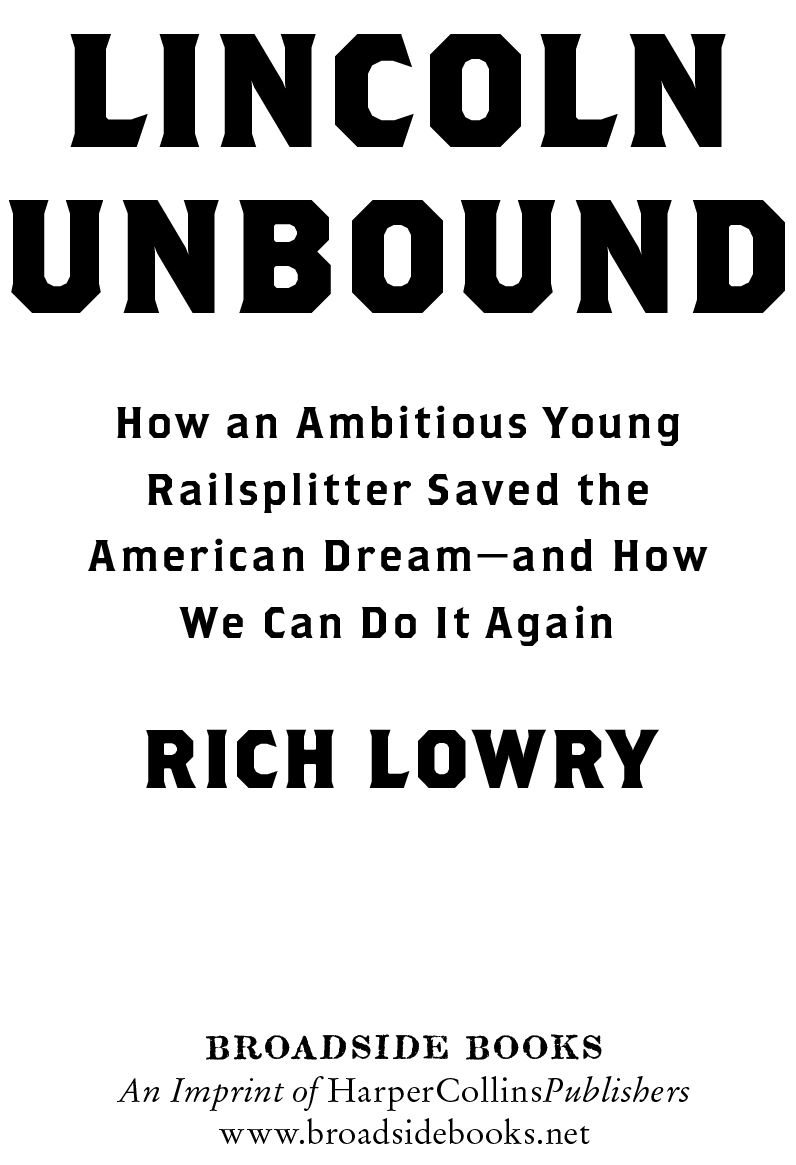
T O E DWARD D . L OWRY,
MY DEAR FATHER.
W riting a book is a solitary pursuit that is only possible through the kindness and generosity of others. My wife Vanessa, my friend and my rock, was patient, encouraging, and willing to lend a hand whenever and wherever necessary. I started this project when we were engaged, and it was our constant companion for the first two years of our marriage. She hates clutter, but tolerated the ever-growing stack of Lincoln books in our apartment. She likes relaxing weekends, but understood when the book took my Saturdays and then my Sundays, too. She showed more understanding than I could have expected when I was tired and distracted. Every day she shows me what love means, and for that I am grateful beyond words.
My assistant, Madison Peace, who is unshakably cheerful and incredibly diligent, aided in research and a dozen other tasks related to the project. I couldnt have finished without her.
My brilliant agent, hilarious friend, and sometime co-author Keith Korman was willing to do anything to advance the project. He always lent a sympathetic ear, even when he was telling to me to Shut up and write.
Adam Bellow was encouraging when he needed to be and (constructively) critical when he needed to be, and made the book better for it. He is an exceptionally talented editor.
Lewis Lehrman is a Lincolnian to the core who has done so much to aid the study and understanding of our sixteenth president. As far as Im concerned, the flaw in David Herbert Donalds book, We Are Lincoln Men: Abraham Lincoln and His Friends is that he left out Lew. He was unfailingly generous, always willing to do a favor, always willing to provide guidance.
I have the privilege of working with some of the smartest and most interesting people on the planet at National Review . They provided characteristically good-humored support. Im especially indebted to our publisher, Jack Fowler, who has the heart of Mother Teresa and the accent of a cop from Bronx Police District 12.
Noah Glyn and Scott Reitmeier provided early research and editorial help, as did Christeleny Frangos. I am grateful to those who read portions of the draft: Michael Burlingame, Bradford Short, Charles Kesler, Danilo Petranovich, Yuval Levin, Scott Winship, Mario Loyola, Charles C. W. Cooke, Adam White, Adam Keiper, Frederick Hess, and Abby Thernstrom. Of course, any and all errors are my own.
Joe and Lorraine Palo were generous as always. I appreciate the support of Nicholas and Noel Vassallo.
My friend Ric Andersen was there when it counted most and I will never forget it.
I will never be able to repay my moms boundless love. My brother Robert is my friend and my joy.
I dedicate this book to my dad, who passed away when it was nearing completion. An English professor and history buff, he was a great reader and lover of books. It is because of him and his library in the basement that I will always have the best associations with the smell of old, musty books. By his example, he taught me lifelong lessons in patience and much else. He is missed, but not gone.
Contents
An Inestimable Jewel: Lincolns America
An Ambition that Knew No Rest: Young Man on the Make
The Sober, Industrious, Thriving People: A Devoted Whig
The True System: The Genius of American Capitalism
Our Fathers: The Lincoln-Douglas Debates and the Purpose of America
The Great Empire: Lincolns Vision Realized
Work, Work, Work: Recovering the Lincoln Ethic
Why if the old Greeks had this man, what trilogies of playswhat epics would have been made out of him!
W ALT W HITMAN, D EATH OF A BRAHAM L IN COLN, 1879
An Inestimable Jewel: Lincolns America
He knew the American people better than they knew themselves.
F REDE RICK D OUGLASS, O RAT ION IN M EMORY OF A BR AHAM L INCOLN, 1876
I n the summer of 1864, President Abraham Lincoln welcomed the 166th Ohio Regiment to the White House. His words that day didnt make it onto the Lincoln Memorial. No schoolchildren ever recited them. But they capture the essence of Lincoln and of his idea of America.
I suppose you are going home to see your families and friends, he said by way of greeting the regiment. These men were representatives of the Union army, whose camps and hospitals he visited, who were fighting and suffering for the Union and who would vote for him in overwhelming numbers in the November election, a contest that, at that moment, Lincoln believed he would lose. The day after seeing the regiment on August 22, Lincoln wrote his blind memorandum stipulating that it is exceedingly probable that this Administration will not be re-elected.
The Ohio troops had been mustered for a hundred days in the spring and had done garrison duty around Washington, D.C. Lincoln offered the soldiers sincere thanks for myself and the country, and then got to the point. I almost always feel inclined, when I happen to say anything to soldiers, he told them, to impress upon them in a few brief remarks the importance of success in this contest.
It is not merely for to-day, he said of the significance of the war, but for all time to come that we should perpetuate for our childrens children this great and free government, which we have enjoyed all our lives. This was a more pedestrian expression of the rousing sentiment from the finale of the Gettysburg Address the prior Novemberthat government of the people, by the people, for the people, shall not perish from the Earth.
I beg you to remember this, he continued, not merely for my sake, but for yours. I happen temporarily to occupy this big White House. I am a living witness that any one of your children may look to come here as my fathers child has. Lincoln characteristically refrained from saying as I have, with its whiff of immodesty. Free government is so valuable, he insisted, because it affords us an open, fluid society where anyone can ascend to the highest office in the land. Or at least ascend higher than where he started.
It is in order, Lincoln said, that each of you may have through this free government which we have enjoyed, an open field and a fair chance for your industry, enterprise and intelligence; that you may all have equal privileges in the race of life, with all its desirable human aspirations. It is for this the struggle should be maintained, that we may not lose our birthrightnot only for one, but for two or three years. The nation is worth fighting for, to secure such an inestimable jewel.
The priceless treasure is opportunity. It is the cause so dear that it was worth a conflagration that made the country, in the title of historian Drew Gilpin Fausts moving book on wartime death, this republic of suffering. In Lincolns telling, America exists to give all people the chance to rise. We are, by birthright and through our free institutions, a nation of aspiration.
This theme wasnt patriotic pap for the boys. Lincoln believed it in the marrow of those strong bones with which he had labored all during his youth. It had suffused his determination, as a boy and into his early adulthood, to read and to learn, so he could do something besides chop and plow all his life. It had been the touchstone of his politics as a Whig and then as a Republican, in the Illinois House of Representatives, in Congress, and in his antislavery leadership in the 1850s that marked the beginning of the heroic phase of his career.

